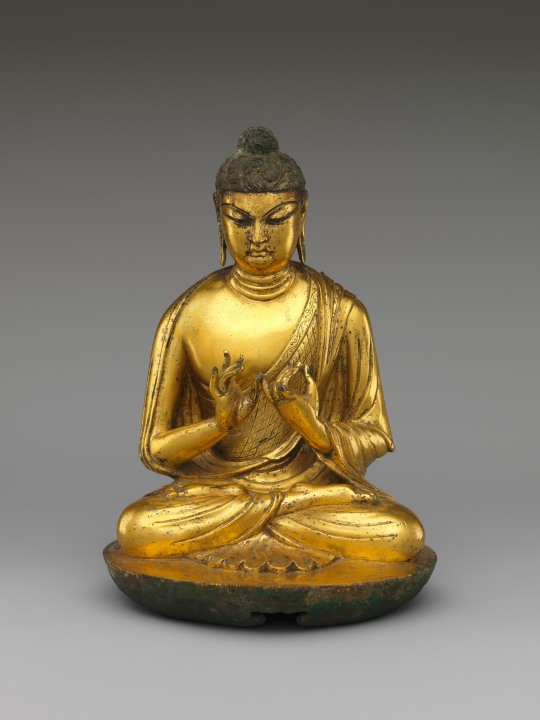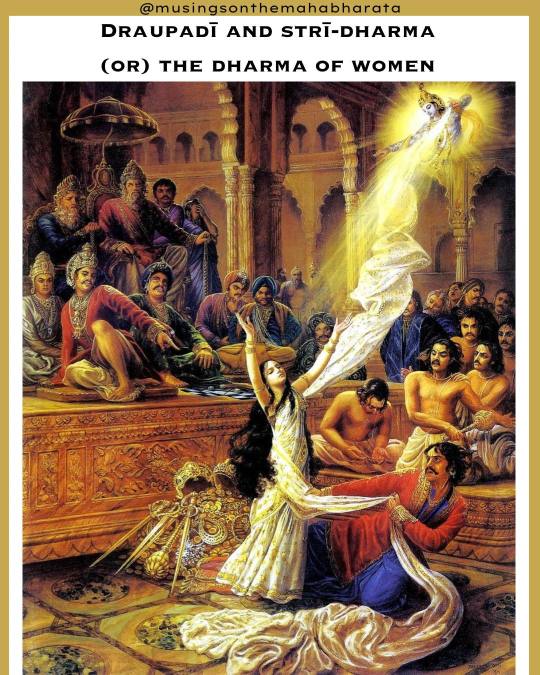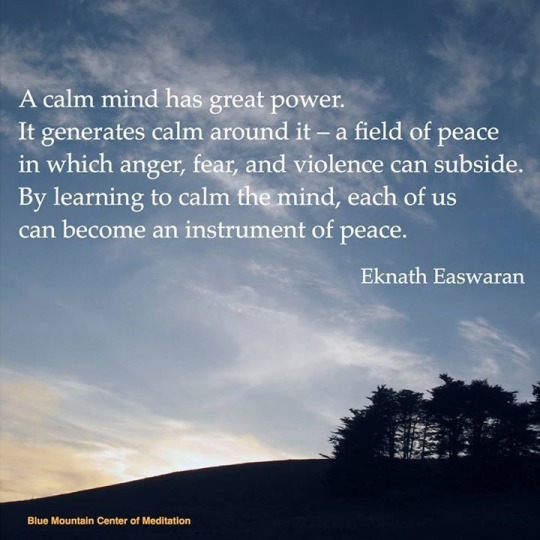#Eknath Easwaran
Photo

Gilt Bronze Seated Buddha Vairocana (China, Tony dynasty, c 720 CE)(唐 鎏金青銅毗盧遮那佛坐像). The teaching gesture made by this figure, with the thumb of the right hand touching the little finger of the left, identifies him as Vairocana, the celestial Buddha who resides at the center of the cosmos. Vairocana is considered a transcendent form of the historical Buddha Shakyamuni. Though similar in appearance, he exists on another plane, unhindered by a mortal body.
[Scott Horton]
* * * *
“Often, it is this anguish of parting - the death of a loved one, the breaking apart of a deep relationship, even the growing up of our children - that propels us into the search for a reality that will never let us down; so this opening passage illustrates, through the experience of Maitreyi, the state of seriousness, of being shocked into alertness, that makes one ready to absorb spiritual insight.”
― Eknath Easwaran, The Upanishads
27 notes
·
View notes
Text

Representation of the Buddha in the Greco-Buddhist art of Gandhara.
“All that we are is the result of what we have
thought: we are formed and molded by our
thoughts. Those whose minds are shaped by selfish
thoughts cause misery when they speak or act.
Sorrows roll over them as the wheels of a cart roll
over the tracks of the bullock that draws it.
All that we are is the result of what we have thought:
we are formed and molded by our thoughts. Those
whose minds are shaped by selfless thoughts
give joy whenever they speak or act. Joy follows
them like a shadow that never leaves them.
(…)
Be vigilant and go beyond death. If you lack
vigilance, you cannot escape death. Those who
strive earnestly will go beyond death; those who do
not can never come to life. The wise understand this,
and rejoice in the wisdom of the noble ones.
Meditating earnestly and striving for nirvana,
they attain the highest joy and freedom.
If you meditate earnestly, pure in mind and kind
in deeds, leading a disciplined life in harmony with
the dharma, you will grow in glory. If you meditate
earnestly, through spiritual disciplines you can make
an island for yourself that no flood can overwhelm.
(…)
Few are those who reach the other shore; most
people keep running up and down this shore.
But those who follow the dharma, when it
has been well taught, will reach the other shore,
hard to reach, beyond the power of death.
They leave darkness behind and follow the light.”
― The Dhammapada, Translated by Eknath Easwaran
#Buddha#Greco-Buddhist art of Gandhara#Gandhara Buddha#Gandhara art#The Dhammapada#Eknath Easwaran#Dharma#Dharma Warrior#Awakening#Enlightenment#Truth#Beauty#Goodness#Nirvana
3 notes
·
View notes
Text
[Self-forgetting]
In the moments when we forget
ourselves-not thinking, Am I happy?
but completely oblivious to our little
ego- we spend a brief but beautiful
holiday in heaven... The joy we
experience in these moments of
self-forgetting is our true nature...
To regain it, we have to... stop
dwelling on ourselves.
(Eknath Easwaran)
18 notes
·
View notes
Text
As the same fire assumes different shapes
When it consumes objects differing in shape,
So does the one Self take the shape
Of every creature in whom he is present.
- The Katha Upanishad
7 notes
·
View notes
Text

There are many distinguished scholars who try to interpret as far as the intellect can what nirvana means... They will say that nirvana is the annihilation of the ego concept; but this definition is far from adequate... Nirvana is really an awakening, which is the meaning of the Buddha’s name: “One who is awake,” from the root budh, “to wake up.” What happens is you wake up from separateness into the whole – from being a fragment to being the indivisible whole... A Buddha is one who becomes aware of the wholeness of life and lives for the welfare of all. Yes , from the negative side, nirvana means you are completely empty of yourself. You have to empty
yourself completely of all your likes and dislikes, of your selfish attachments, your self-will, your petty personal desires... So nirvana is emptiness. But it is also complete fullness. In order to be full you have to empty yourself completely of yourself... The intellect can never understand this. The only way to understand nirvana is to experience it...
~ Eknath Easwaran
13 notes
·
View notes
Quote
Through meditation and by giving full attention to one thing at a time, we can learn to direct attention where we choose.
Eknath Easwaran
#Eknath Easwaran#quotes#life#love#important#tumblr#instagood#aesthetic#girl#literature#sad quotes#sad poem#zitate
1 note
·
View note
Video
youtube
You Are That
What is our true identity? Who are we, really? Easwaran offers a short, powerful explanation of the famous Sanskrit spiritual formula, "Tat tvam asi", meaning "You are That": the infinite, immortal spirit at the core of human consciousness.
0 notes
Text
You are what your deep, driving desire is.
— Brihadaranyaka Upanishad
Desire is the key to life, because desire is power. The deeper the desire, the more power it contains.
Most people start life with many small desires. Their power and vitality trickle away in many directions. None of their desires is deep enough to contain much power. But there are people whose lives are molded by only a few, consuming desires. Such people usually achieve their goals. Because their desires are unified, their will becomes nearly invincible. To desire something deeply is to will it, and to will is to achieve. If they want to become a great artist, build a bigger pyramid, explain the movements of the planets, they devote their life to that, and usually succeed. Wherever you find great success in life, it is fueled by the intense unification of desires.
But the most successful people of all are the rare men and women like Mahatma Gandhi and Saint Teresa of Avila who have but one desire. All lesser desires have been consumed in the great fire of love for God.
— Eknath Easwaran
1 note
·
View note
Text
We all need joy, and we can all receive joy in only one way, by adding to the joy of others.
— Eknath Easwaran
#quotes#quote#wisdom#lifequotes#light#quoteoftheday#Eknath Easwaran#joy#needs#receive#giving#others#oneness#interconnectedness#collectivity#service#solidarity
0 notes
Photo

With this kind of detachment, pleasure leaves no residue of compulsion in the mind - no emotion-charged memory, no craving to look forward to the next time. Ordinarily, after a satisfying sensory experience, the mind immediately wants to know, “When can we do that again?”.
The memory sits in the mind like a time bomb, waiting for a suitable opportunity to explode into behavior again.
There is very little freedom in this, which greatly curtails our capacity to enjoy. Even to enjoy a sensory experience, we have to be detached.
(...)
Don`t you want to be free?
0 notes
Text

Draupadī and the Dharma of Women
"Strī" translates from Sanskrit as "woman", while "dharma" is a complex principle with manifold meanings, in this context bearing the significance of "duty"; in simple terms, it refers to an individual conduct that contributes to harmony in a greater framework, be it societal or cosmological.
Draupadī is lauded in the Critical Edition of the Mbh several times as being the epitome of strī-dharma, of the dharma of women. (2.62.20; 2.63.25-30; 2.64). Interestingly, she is most intensely praised as such after she angrily (yet elegantly!) questions the men of the royal court and demands justice, being anything but meek and demure. I would argue that this showcases that in the Mahābhārata voicing oneself and standing up for oneself are considered responsibilities belonging to the dharma of women.
To nuance this even more, Eknath Easwaran, an eminent translator of the Bhagavadgītā, highlights that, etymologically, the term "dharma" can be traced back to the root 'dhri', which means 'to support, hold up, or bear'; "dharma" therefore translates as "that which supports", and Draupadī's conduct therefore supports both society and cosmology.
In the Sanskrit Mbh, Kṛṣṇa does not appear in the sabhā (royal hall) at the time of Draupadī's attempted disrobing, and no direct mention of him is made during this episode. In a conversation with Dr. Brian Black, a Mbh researcher whom I had the honour to have as my MA supervisor, we talked about the implication of this, which is that Draupadī's adherence to strī-dharma appears to be that which shields her. A question that could arise here could be whether there is a contradiction between the Critical Edition and modern renderings of the Mahābhārata, with Draupadī being shielded by her dharma as opposed to by Kṛṣṇa.
For me there is no contradiction.
Kṛṣṇa in the Bhagavadgītā establishes himself as 'the eternal dharma' (14.27); and so, Kṛṣṇa is all dharmas, including strī-dharma. We tend to associate Kṛṣṇa with a fully-fledged incarnation; but he is beyond that. I would maintain that, as the divine principle, he exists in Draupadī's consciousness and in her actions as dharma (and not only!). The latter renditions, for me, in which he is physically there, only bring forth in tangible projections the internal process extending Draupadī's consciousness.
You can find me on IG: @musingsonthemahabharata.
Painting: Jadurani Dasi, 1986.
#mahabharata#mahabharat#draupadi#krishna#draupadi's disrobing#hindu art#mahabharatam#panchali#hindu mythology#hinduism#hindu#hindu philosophy#itihasa#sanskrit#phd#phd scholar#dharma#stri dharma#bhagavadgita#bhagavad gita#bhakti#vishnu
77 notes
·
View notes
Text

“There is a haunting verse in the Brihadaranyaka Upanishad which says:
You are what your deep, driving desire is.
As your deep, driving desire is, so is your will;
As your will is, so is your deed;
As your deed is, so is your destiny.
The key word here is one of the most important terms in the Gita: shraddha. Shraddha has a wealth of meanings; it may be a deep desire, or strong conditioning, or the underlying assumptions which shape our thoughts and actions. The basic meaning is faith – not just intellectual adherence to something, but what we believe in, what we trust in, in our heart of hearts. Shraddha is the key to life. It
is our shraddha, our conditioned assumptions, that shapes our thoughts and actions, and it is our shraddha, our faith, that shapes our will and our destiny. We become what our shraddha is, because all of us live out what we believe and desire in the deepest recesses of our consciousness.”
― Eknath Easwaran, from The Bhagavad Gita for Daily Living, vol. 2: Like a Thousand Suns
#Eknath Easwaran#The Bhagavad Gita for Daily Living#Brihadaranyaka Upanishad#vedic culture#shraddha#perennial philosophy#timeless wisdom#Soulmaking
1 note
·
View note
Text
Beyond the reach of words and works is he [the Self], but not beyond the reach of a pure heart freed from the sway of the senses.
Unknown, Mundaka Upanishad, trans. Eknath Easwaran
9 notes
·
View notes
Text
Dear Ones All,
Since the previous quotations were so well received, here is another set.
1. “When change comes into your life, it is because a larger dynamic is moving you along.” – Caroline Myss (Think of the ocean and the wave. That wave is being propelled by a larger, unseen force. So are we, and that energy – that wisdom – is always at work in our lives, even when we least recognize it.)
2. “Love does not conquer all things, but it does set all things right.” – Marianne Williamson (Sometimes it takes a lot of letting go of our expectations, etc, before we can find it within ourself to love someone “anyway.” It wasn’t that the other person was unlovable, only that our heart was not yet large enough to embrace the other.)
3. “You have been born into this sea for no other purpose than to reach its other shore.” – Eknath Easwaran (That “other shore” can be different for each of us. It all depends on what we are working through. No matter. Resolution is always possible for those who persevere.)
4. “The real teaching is almost entirely non-verbal.” – Jon Kabat-Zinn (Yes, and when we do understand that, we can’t explain it. We can only live it.
5. “How we spend our days is, of course, how we spend our lives.” – Annie Dillard (Is your life what you want it to be? If not, just remember, all change begins within.)
Sending you love,
Donna Miesbach
4 notes
·
View notes
Text
Grand Rising 💫
Oracle reading for the collective right now:

The Holy Spirit is urging the collective to follow the passion within each and every single one of you. That passion is God. Let God guide you to what is meant to fulfill you in this lifetime, whether it is creating a YouTube channel or crafts of your choice that make you feel an overwhelming sense of joy. God is consciousness within us all. It is the pure energy within us. When we can’t stop thinking about something we really want to do it’s because the piece of God within you is urging you in that direction, so create!!
Free yourself from all thought illusions that cause you to feel emotions such as fear, doubt, embarrassment for there is nothing fearful, doubtful, or embarrassing about God. Clean up the space you wish to perform your practices and dedicate each and every movement to God. Make living a ritual where you acknowledge that everything you can see and can’t see is the pure existence of God that which you are a part of.
During this time, Gaia is going through immense changes. All the darkness from centuries of evolution is coming to light in order to be transformed into positive energy, to bring you closer to God, and to take a step forward in our evolution as spiritual beings in physical bodies, each a fragment of the Creator. Listen to the Creator within you, and you will receive great abundance in everything you need and want because as long as you are taking action in the highest good of all (selflessly) you are at the peak of consciousness. Do not take these actions your Spirit is calling you to take just because you want the benefits or the “fruit of your labor”. Do it because you are a fundamental aspect of the Universe and you are needed to raise the consciousness of everyone you come in contact with, creating a world of peace and prosperity. Love yourself as you do others, for they are merely a reflection of you.
It’s time to shed yourself of all belief systems that no longer serve you. Jealousy, anger, and bitterness will only leave you in a loop of Karma, for Karma is just as much of a fundamental aspect of the Universe as you are. So create, create a ripple effect of Christ consciousness and meditate on healing not only yourself but all other beings as well, for they are also you.
This message will reach those who are ready to hear it.
333,444
🫶
Book recommendation:
The Bhagavad Gita By Eknath Easwaran
#aesthetic#free tarot#oracle#tarot#tarot cards#witchcraft#witches of tumblr#spiritualguidance#spiritualism#divination#444#333
2 notes
·
View notes
